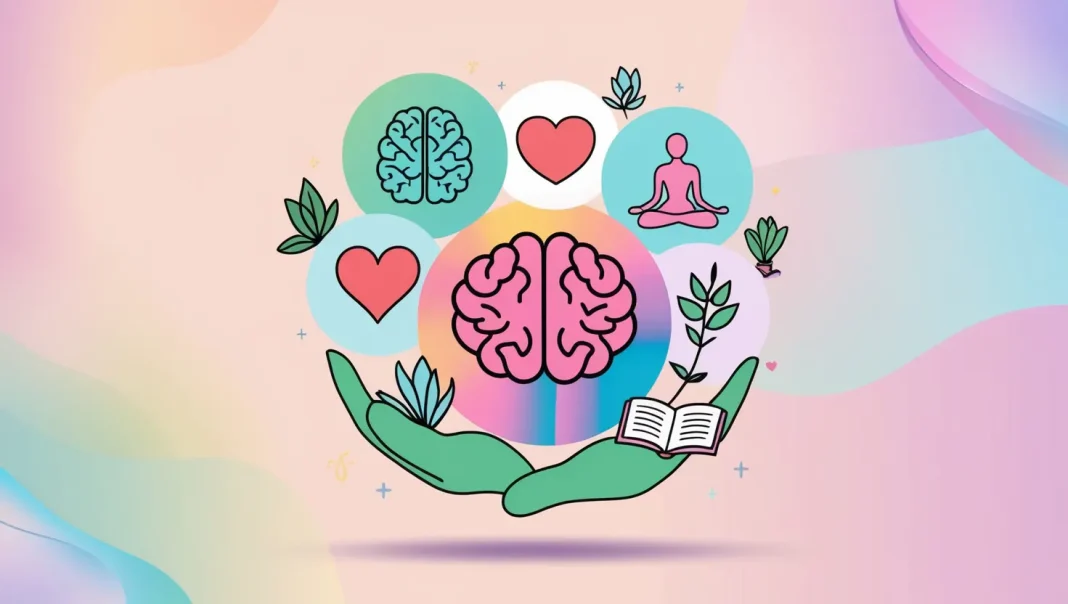Practical Strategies for a Balanced Mind
Taking care of our mental health can feel like a never-ending journey. With life throwing challenges our way, it’s crucial to learn how to keep our minds resilient and healthy. So, let’s dive into some effective strategies that can help you manage your mental health like a pro.
Understanding Mental Health
Definition of Mental Health
Mental health includes our emotional, psychological, and social well-being. It affects how we think, feel, and act, as well as how we handle stress, relate to others, and make choices. Good mental health isn’t about always being happy, but about finding balance in the face of daily challenges.
Importance of Mental Health
Why does mental health matter? Well, much like physical health, it impacts every aspect of our lives—from relationships and work performance to self-esteem. Maintaining mental well-being enables us to be more present and enjoy life’s moments fully.
Common Mental Health Challenges
Stress and Anxiety
Stress and anxiety are two of the most common mental health challenges. They can stem from various sources, like work, finances, or personal relationships, but learning to manage them is key to keeping our minds at ease.
Depression and Mood Swings
Depression is more than just feeling sad; it’s a persistent feeling of emptiness that affects one’s ability to function. Mood swings can also be disorienting, impacting both our inner peace and relationships.
Loneliness and Isolation
Loneliness and social isolation can deeply affect mental health, especially in today’s hyper-connected world. Though we’re always online, the lack of face-to-face interaction can create feelings of disconnection.
Self-Care Strategies for Mental Health
Practice Mindfulness
Mindfulness is about focusing on the present moment. Whether through meditation, deep breathing, or just being more aware, mindfulness can help reduce anxiety and improve our sense of calm.
Set Realistic Goals
Setting achievable goals, whether big or small, helps build a sense of accomplishment. Instead of overwhelming yourself, try breaking down your tasks into manageable steps.
Building a Support System
Connecting with Loved Ones
Sharing your thoughts and emotions with close friends or family members can be incredibly therapeutic. Even a brief chat can sometimes lift the weight off your shoulders.
Seeking Professional Help
Sometimes, friends and family aren’t enough, and that’s okay. Seeking professional support, like therapy or counseling, provides you with tools to navigate your mental health journey more effectively.
Managing Stress Effectively
Identifying Stress Triggers
Recognizing what sets off your stress is the first step in managing it. Whether it’s work deadlines, social pressures, or financial concerns, pinpointing triggers helps in addressing them directly.
Relaxation Techniques
Techniques like deep breathing, progressive muscle relaxation, or even listening to calming music can work wonders in calming your mind.
Incorporating Physical Activity
Benefits of Exercise on Mental Health
Exercise is a powerful tool for boosting mental health. When you move your body, it releases endorphins, or “feel-good” hormones, which can naturally uplift your mood.
Easy Ways to Get Moving
Don’t think exercise has to mean hitting the gym. Activities like walking, dancing, or even playing with a pet can give you the benefits of physical activity.
Embracing Healthy Lifestyle Choices
Eating Well for Mental Health
The food we eat affects our mood and energy. A balanced diet rich in fruits, vegetables, whole grains, and lean proteins can have a positive impact on your mental health.
The Importance of Sleep
Sleep is essential for a balanced mind. A good night’s rest lets our brain recharge, making us better equipped to handle stress and process emotions.
Practicing Gratitude and Positivity
Keeping a Gratitude Journal
Writing down things you’re grateful for daily shifts your focus from negative to positive aspects of life. Even a few notes each day can help you stay optimistic.
Surrounding Yourself with Positivity
Spending time with people who lift you up and engage in activities that bring you joy can help create a positive mindset.
Avoiding Negative Coping Mechanisms
Recognizing Harmful Behaviors
It’s essential to identify and curb harmful coping mechanisms like excessive drinking, smoking, or emotional eating, which often mask rather than resolve issues.
Replacing with Positive Habits
Instead of turning to negative outlets, try activities like exercising, reading, or even taking up a new hobby to cope with stress.
Developing a Daily Routine
The Benefits of Routine
Routines offer structure, which can reduce anxiety. Following a predictable schedule provides comfort and stability, especially during turbulent times.
Tips for Creating Your Routine
Start with the basics—set a time for waking up, meals, and winding down. Gradually incorporate activities that add purpose and joy to your day.
Seeking Support Online and Offline
Mental Health Apps and Resources
Many apps provide access to mental health resources, offering everything from meditation guides to virtual therapy sessions. These can be helpful, especially when immediate support is needed.
Support Groups and Communities
Both online and in-person groups provide safe spaces for people facing similar challenges. It’s a great way to share experiences, gain insights, and find encouragement.
Building Resilience
How to Bounce Back from Setbacks
Life’s challenges can knock us down, but resilience helps us get back up. Building resilience involves learning to adapt and grow from setbacks.
Strengthening Emotional Resilience
To become more emotionally resilient, focus on positive self-talk, develop strong relationships, and maintain a sense of humor. These traits help you navigate life’s rough patches more smoothly.
Recognizing When to Seek Help
Signs You May Need Extra Support
If you’re feeling persistently overwhelmed, having trouble functioning, or experiencing extreme mood swings, it might be time to seek help from a mental health professional.
Types of Mental Health Professionals
From therapists to psychiatrists, a range of professionals can provide support. Understanding their roles helps you choose the right person for your needs.
Final Thoughts on Managing Mental Health
Summary of Tips
Managing mental health is a personal journey with many tools to guide you. The steps we’ve discussed can form a strong foundation for maintaining a healthy mind.
Importance of Consistency
Consistency is key. By regularly practicing these habits, you can make mental wellness a sustainable part of your life.
Conclusion
Navigating mental health isn’t always easy, but with the right strategies and support, it’s absolutely manageable. Building a support system, staying active, practicing gratitude, and recognizing when to seek help are just a few ways to keep your mind strong. Remember, mental health is a journey, not a destination, so take it one day at a time.
FAQs
Q1: What are some quick ways to reduce stress?
Some quick stress relievers include deep breathing exercises, listening to calming music, or taking a short walk outside.
Q2: How does physical activity improve mental health?
Exercise releases endorphins, which are natural mood lifters. It can also reduce symptoms of anxiety and depression.
Q3: What is a gratitude journal, and how does it help?
A gratitude journal is where you note things you’re thankful for each day. It shifts your focus to positive aspects of life, helping improve overall mood.
Q4: How can I build resilience?
Building resilience involves facing challenges head-on, using positive self-talk, and learning from experiences rather than letting them bring you down.
Q5: When should I seek professional help for mental health issues?
If you’re feeling overwhelmed, experiencing severe mood swings, or having trouble functioning daily, it might be time to consult a mental health professional.













